Rajit Kapur: Theatre has always been my first love
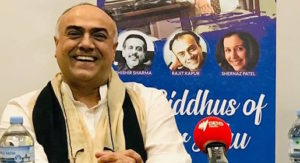
By Neeru Saluja
He’s made his mark in theatre and films but till date he is recognised as Byomkesh Bakshi. Meet actor Rajit Kapur, who became a household name with his portrayal of the Indian crime detective on television in the 90s.
The National Award winning actor was in town for his play ”˜The Siddhus of Upper Juhu’ brought by SAI Creative Arts Network. As the first Indian to play the role of Mahatma Gandhi in the ”˜Making of Mahatma’, Rajit soon became director Shyam Benegal’s favourite actor with notable roles in ”˜Suraj Ka Satvan Ghoda’, ”˜Zubeidaa’, ”˜Netaji Bose’ and most recently in films like ”˜Raazi’ and ”˜Uri’.
As we talked about his acting journey and the challenging roles he has played, he still considers theatre to be his base and his ”˜first love’.
From Byomkesh Bakshi to Balvinder Sidhu, how would you define your acting journey?
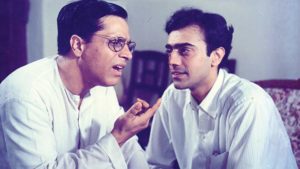
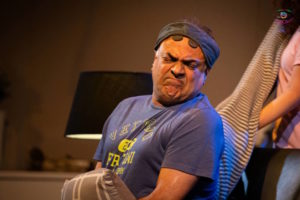
Byomkesh Bakshi happened in 1991 and it became a household name. Even after 25 years many generations have watched it and parents who loved it are now showing it to their children. Doordarshan, who has the right is screening it every two years. I never imagined it would become so popular. The main reason was that it was simple to understand.
But I haven’t gone back to television since then. It became stagnating and I started balancing films and theatre in the last 28 years. I do one play and 2-3 films each year which has kept me satisfied as an actor.
What’s your character Balvinder Sidhu aka Bubbles in ”˜The Siddhus of Upper Juhu’ like?
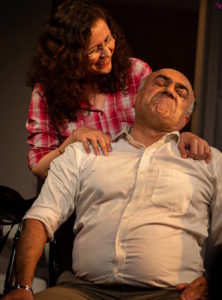
It revolves around his mid-life crisis as he is grappling with the loss of his job and coping with the everyday nuances of life. It is dealt in a humorous way but drives an important point home. It also focuses on his relationship with his wife and siblings and how things change when things go wrong.
You have made your mark in all mediums ”“ theatre, cinema and television. As a versatile actor, which medium brings the best out of you?
Theatre has always been my first love. I will never leave it or let go of it. Even if I did films, the stage always called me back and brings out my best.
You were recently seen in ”˜Raazi’ and have mentioned that it was one of the best films offered to you. What made it so unique?
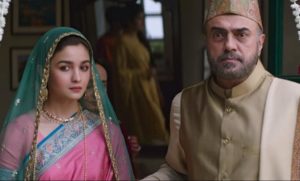
When I say best film it was in terms of the screenplay. You don’t come across a script that is so detailed which is very inspiring for an actor. Initially I wasn’t sure if I could do this role as the dates didn’t match. But then I also believe if it is meant to be it will happen.
Your portrayal of Mahatma Gandhi in ”˜Making of the Mahatma’ fetched you a National Film Award for best actor. Was that moment a turning point in your career?
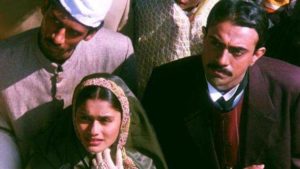
It was a turning point in my career as I wasn’t meant to play the role of Mahatma Gandhi but the role of the revolutionary. They had issues with the casting for the lead role and Mr Shyam Benegal did a make up test on me and said “right my dear, you are on!” That was a huge responsibility and after winning the National Award I became a more responsible actor!
You were an international jury member in 2014 for the Asia Pacific Screen Awards in Brisbane. How was the experience?
It was absolutely wonderful meeting cinema lovers and performers from across the globe. We saw five films a day which was quite exhausting. But it was the interaction that was wonderful. I would never let go of such an opportunity. Director Anurag Kashyap had to go in my place but as he couldn’t make it, it fell on my lap.
You played a very challenging role in ”˜Do Paise ki dhoop’ with Manisha Koirala. Though you play the role of a gay songwriter, the character is not stereotyped. Was that a deliberate attempt?
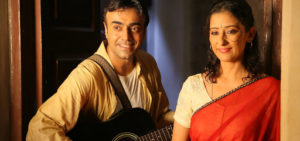
We clicked instantly when we talked about it. I was actually helping Deepti Naval with the script and she asked if I wanted to do the role. I said if I say yes then I won’t let anyone else do it! It may have seemed extraordinary but it wasn’t. We never went into the stereotypical gay. It was about two people trying to find companionship together. When it was ready, no one wanted to touch as it was way ahead of times. It was so beautifully made. We wanted to break away from the stereotypical gay and keep it as simple as any character.
What’s next on your plate?
We have just opened a play called ”˜Mosambi Narangi’. We are playing six roles on stage without stepping out of the stage platform. I’m in the process of completing a film called ”˜Laila Manju’ but my focus is now on the theatre.
Short URL: https://indiandownunder.com.au/?p=14952
